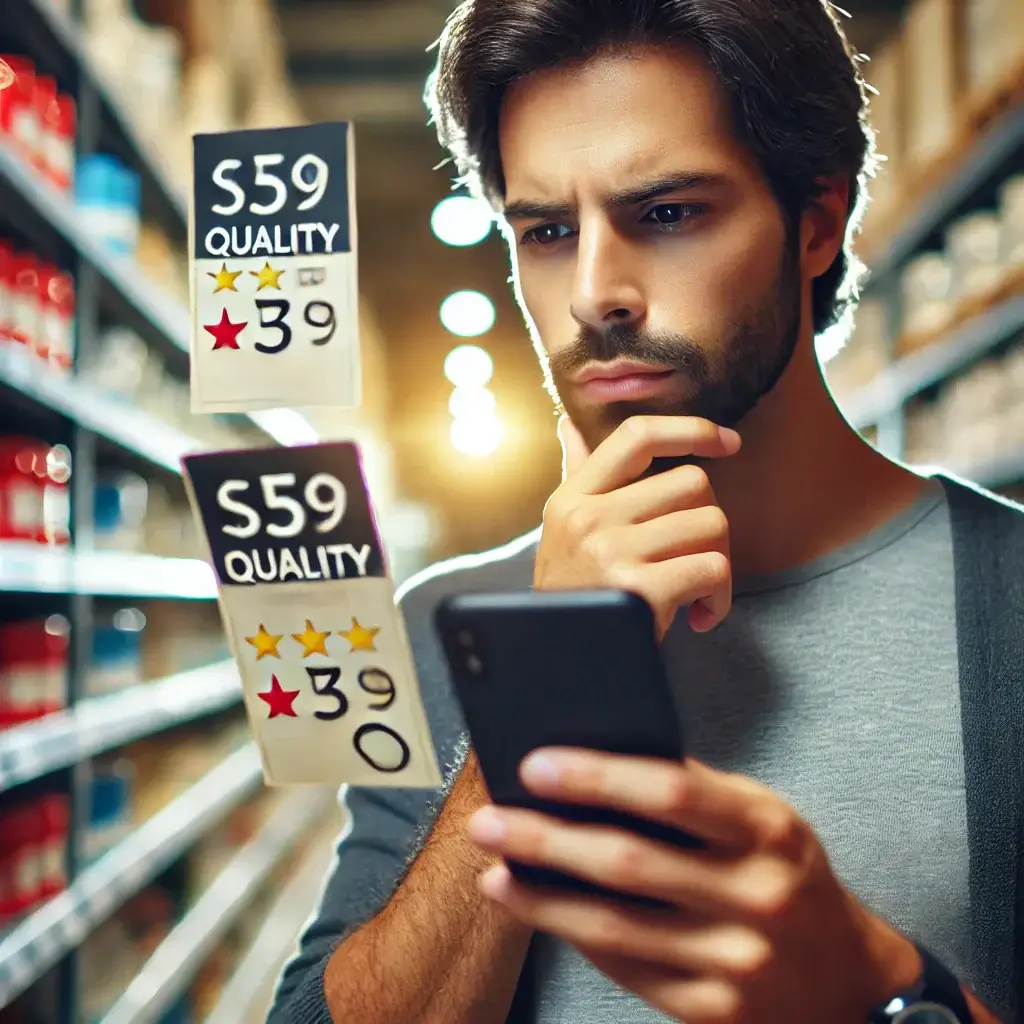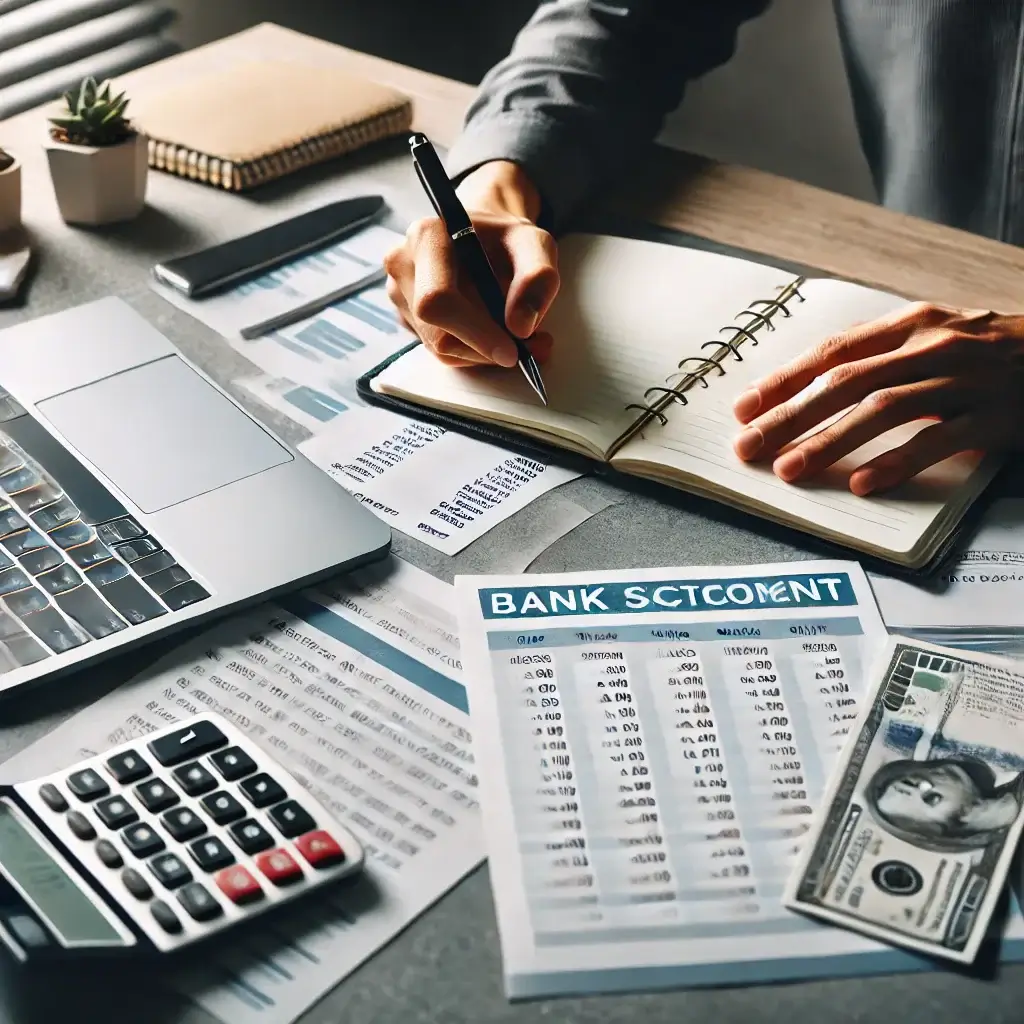Shopping can be exciting, but it’s also easy to wonder if you’re really getting your money’s worth. With so many options, sales, and advertisements out there, figuring out what’s worth buying can feel overwhelming. So, how does a consumer know whether a purchase may be a good deal? It's something we all wonder at some point, whether we're purchasing a new phone, clothes, or even food. Here in this article, we're going to explain it step by step, employing simple tricks and tips to make you shop intelligently. Let's get started!
Why It's Difficult to Identify a Good Deal
Let's discuss why it's not always easy to know when something is a great purchase before we proceed to the how-to section. Retailers and brands are experts at making something appear to be a deal, when in fact it's not. Coupons, one-day sales, and glitzy commercials can deceive us into believing we're saving money. But are we, really? That's where being aware of how does a consumer know whether a purchase might be a good deal comes into play. It's about piercing through the hype and determining what's really worthwhile.
The best part? You don't have to be a math whiz or a shopping guru to get this right. With some simple habits, you can begin to identify the good deals and steer clear of the traps. Let's take a look at how.
H2: How does a consumer know whether a purchase may be a good deal? Start with Research
Step one to getting the answer to how does a consumer know whether a purchase may be a good deal? is taking a little homework. Research may seem dull, but it's really easy now with the internet. Look up what things normally cost before you purchase anything—particularly larger items like electronics or furniture.
Begin by comparing various stores or websites. Compare the price you're looking at to what other stores are offering. If a TV is $500 at one store but $400 everywhere else, that's a red flag. You can use price comparison tools such as Google Shopping or apps such as Honey to make this easy and hassle-free. The idea is to get an idea of the "normal" price so you can know if the sale price is really a steal.
H3: Review Price History to Validate the Deal
Here's a neat hack: check a product's price history. Sites such as Came l Came l Camel (for Amazon) or keep a can reveal how much something has cost in the past. If that $50 sweater was $45 last month, the "deal" isn't quite as great as it appears. Asking how does a consumer know whether a purchase may be a good deal? l is looking deeper than the sale sticker. Price history allows you to look at whether the discount is actual or merely marketing hype.
H2:How does a consumer know whether a purchase may be a good deal? Look at Quality
Price isn’t the only thing that matters—quality does too. A cheap item might seem like a good deal until it breaks after a week. So, How does a consumer know whether a purchase may be a good deal? It’s all about checking if the thing you’re buying will last.
Read what other purchasers have to say. Sites like Amazon, Walmart, or even Facebook can tip you off to how something performs. If many people report a $20 blender performs wonderfully for years, that's an indication it's a good value. But if a $10 shoe disintegrates in a month, you're not saving you're just wasting it.
H3: Cost vs. Durability
Think about how long you’ll use the item. A $100 jacket might sound pricey, but if it lasts five winters, it’s cheaper than buying a $30 one every year. Asking how does a consumer know whether a purchase may be a good deal? means thinking long-term. Divide the price by how many times you’ll use it to get a better picture. A daily-used $5 coffee mug is a better value than a touched-rarely $20 mug.
H2: How Does a Consumer Know Whether a Purchase May Be a Good Deal? Timing Matters
Believe it or not, when to shop does matter. Retailers frequently lower prices at specific times of the year, such as Black Friday, Cyber Monday, or after the holiday season. So how is a consumer supposed to know if a purchase can be a good value based on timing? It's all about knowing when to hold back and when to pounce.
For instance, winter jackets become available at spring sales, and computer gadgets are more affordable when new ones are released. If you don't mind waiting, waiting for a grand sale can help you save quite a lot of money. However, if you need it immediately, don't worry—there are still alternatives on how to determine whether it's worth purchasing.
H3: Watch for Seasonal Discounts
Watch the calendar. Back-to-school sales work best for laptops, and summertime is optimal for outdoor deals. Timing is what can say how does a consumer know whether a purchase potentially is a good deal without any hard work. Opt in for store newsletters or social media pages to receive sales notices.
H2: How Does a Consumer Know Whether a Purchase Might Be a Good Deal? Check the Fine Print
Sales can seem great until you scan the fine print. That "50% off" sale may have strings attached, such as a membership charge or a catch that raises the price down the road. So how can a consumer determine if a purchase is likely to be a good bargain when the sale appears to be too good to pass up? Always read the fine print.
Consider shipping prices, return policy, and warranty. A $300 computer may be a deal, but add $50 in shipping and no return, and it's less desirable. Secret charges can make a "bargain" a bust, so check the terms before hitting "buy."
H3: Steer Clear of Impulse Purchases
Limited-time offers might rush you to make a quick purchase, but that's usually just a trick. Take a moment to ask yourself, how does a consumer know whether a purchase may be a good deal? If you can't locate clear information or the offer seems suspicious, walk away. A genuine bargain never has to rush you into making an instant decision.
H2: How does a consumer know whether a purchase may be a good deal? Trust Your Needs
Here's a large one: a bargain is only good if you really need the item. A $200 treadmill can be 70% off, but if you never work out, it's just junk. So how does a consumer determine if a purchase could be a good bargain when temptation arises? It's about aligning the buy with your life.
Prior to shopping, prepare a list of what you require. Stick to it, and don't let an attractive discount redirect your efforts. A good deal on something useless isn't a deal—it's a waste. Be clear about what contributes to your daily value.
H3: Ask Yourself the Right Questions
Test this: Will I use it? Does it answer a need? If the answer's no, skip it. Understanding how does a consumer know if a purchase could be a good value begins with understanding yourself. A $10 gadget can be inexpensive, but if it ends up in a drawer, it's worth nothing.
H2: How Does a Consumer Know Whether a Purchase May Be a Good Deal? Use Coupons and Rewards
One simple way to find a good bargain is to double up on savings. Coupons, discount codes, and loyalty points can make a decent price exceptional. How do consumers know then if a buy might be a good bargain with these add-ons? It's all about optimizing what is available.
Browse online for codes first—websites such as RetailMeNot or browser add-ons like Rakuten can assist. If you have a rewards membership at a store, look at your points. A $50 item may fall to $40 with a coupon, making it a "good deal."
H3: Stack Offers Smarter
Certain stores allow you to stack multiple discounts. A discount price and a coupon and free shipping? That's a score. Asking how does a consumer know whether a purchase might be a good value means seeking out these small increments that add up.
H2: How Does a Consumer Know Whether a Purchase May Be a Good Deal? Trust Your Gut
Sometimes it's not entirely numbers and research—your gut instinct comes into play too. If something doesn't feel right about an offer, then it likely isn't. How does a consumer know if an item might be a good deal if the facts are uncertain? Listen to that inner voice that says double-check.
Perhaps the seller's suspicious, or the price is much too low for the quality. Listening to your instincts can prevent you from being scammed or experiencing buyer's remorse. It's not perfect, but it's a good fallback when you're unsure.
H3: Learn from Past Buys
Remember past deals you have caught. What succeeded? What didn't? Your own experience addresses the question of how does a consumer know whether a purchase may be a good deal? in the long run. The more you shop, the more proficient you will become at recognizing winners.
.
FAQ 1: What's the first thing I should do to determine whether something's a good deal?
Answer: Excellent question! The first thing you should do is a bit of research—it's the key to clever shopping. When you're asking yourself, how does a consumer know whether a purchase may be a good deal? , begin by looking up the regular price of the item. Check it out on various websites or shops to find out what it normally retails for. Say, if you're looking at a $100 coffee machine that's currently $70, you want to know whether $100 was the actual price or merely jacked up to make the discount appear more attractive. Google Shopping or price monitors like Came l Came l Camel can provide you with price history, so you're not speculating. It only takes a couple of minutes, but it's well worth it in order to prevent getting taken in by counterfeit offers. And besides, it gives you the confidence that you are saving money, too.
Thus, price checking is step one in answering how does a consumer know whether a purchase may be a good deal?
—it's like being your own shopping sleuth!
FAQ 2: Is the quality of a product relevant when trying to find a good deal? Answer: Absolutely, quality plays a big chunk of the picture! When you're wondering how does a consumer know whether a purchase may be a good deal?, you can't look only at the price tag—You've gotta consider how well the item lasts. A cheap $15 pair of headphones might seem like a steal, but if they break in a month, you’re back to square one, spending more to replace them. On the other hand, a $50 pair that lasts a year is a better value. To figure this out, read reviews from other buyers—check sites like Amazon or even ask friends what they think.
Look for comments about durability and performance.
A good deal isn’t just about saving money today; it’s about not wasting money tomorrow.
So, when you’re figuring out how does a consumer know whether a purchase may be a good deal?, always weigh the quality against the price—it’s a game-changer.
FAQ 3: How can timing help me get a better deal?
Answer: Timing is like a secret weapon for shoppers! If you're asking yourself, how does a consumer know whether a purchase may be a good deal?, being aware of when you shop can be the difference. Stores lower prices at specific times—such as Black Friday, clearance sales at the end of a season, or when new models are released.
For example, if you need a winter coat, wait until spring when stores are getting rid of old stock—prices can be cut in half or more!
Same goes for tech: older phones get cheaper when the latest version hits the market.
You don’t have to stalk sales every day; just sign up for store emails or follow them on social media for alerts. If you’re not in a rush, waiting for the right moment can turn an okay price into a great one. That's a huge part of how does a consumer know whether a purchase may be a good deal? —it's playing the waiting game cleverly.
FAQ 4: What do I need to look out for in the fine print of a deal?
Answer: Oh, the fine print—it's where deals can become sneaky!
When you're wondering how does a consumer know whether a purchase may be a good deal? Always take a minute to scan the fine print.
That "50% off" sticker may sound great, but there may be strings such as extra shipping charges, limited return period, or a mandatory subscription that puts the price back up. For instance, I once came across a "cheap" TV online, but it cost $40 to ship, and there was no guarantee—suddenly it wasn't so cheap. Look at the total cost, not just the sale price, and check the return policy in case it doesn’t work out. If the deal’s online, scroll to the bottom of the page or click “terms and conditions” to spot any tricks. By doing this, you’re making sure the deal is real, which is key to answering how does a consumer know whether a purchase may be a good deal? —don't let the little things get the best of you!
FAQ 5: How do I not buy something just because it's on sale?
Answer: We've all been here—buying things just because they're cheap! To address how does a consumer know whether a purchase may be a good deal?, you must keep your eyes on what you really need. A $200 gadget at 80% discount is still wasteful if it will just gather dust forever. undefined Make a list of what you're looking for—such as a new frying pan or running shoes—before you go shopping, and try to stick to it. undefined When you spot a sale, ask yourself: "Do I need this? undefined Will I use it? undefined" If the answer is no, don't buy it, no matter how inexpensive it may be. It’s also smart to set a budget so you don’t get carried away by “limited-time” hype. undefined I’ve learned this the hard way—bought a discounted blender once and never used it! undefined real deal matches your life, not just your wallet. undefined That’s the heart of how does a consumer know whether a purchase may be a good deal? undefined—it’s about staying in control.
Wrapping It Up
So, how does a consumer know whether a purchase may be a good deal? It's a combination of research, timing, quality checks, and knowing what you need. Start by shopping around and reading reviews. Time your purchases during sales, read the fine print, and layer on those discounts. Most importantly, ensure it's something you'll actually use. Shopping smart doesn't have to be difficult—it's simply about asking the right questions.
Next time you’re eyeing that sale tag, you’ll have the tools to figure out if it’s worth it. how does a consumer know whether a purchase may be a good deal? Now you’ve got the answer—and you’re ready to shop like a pro




